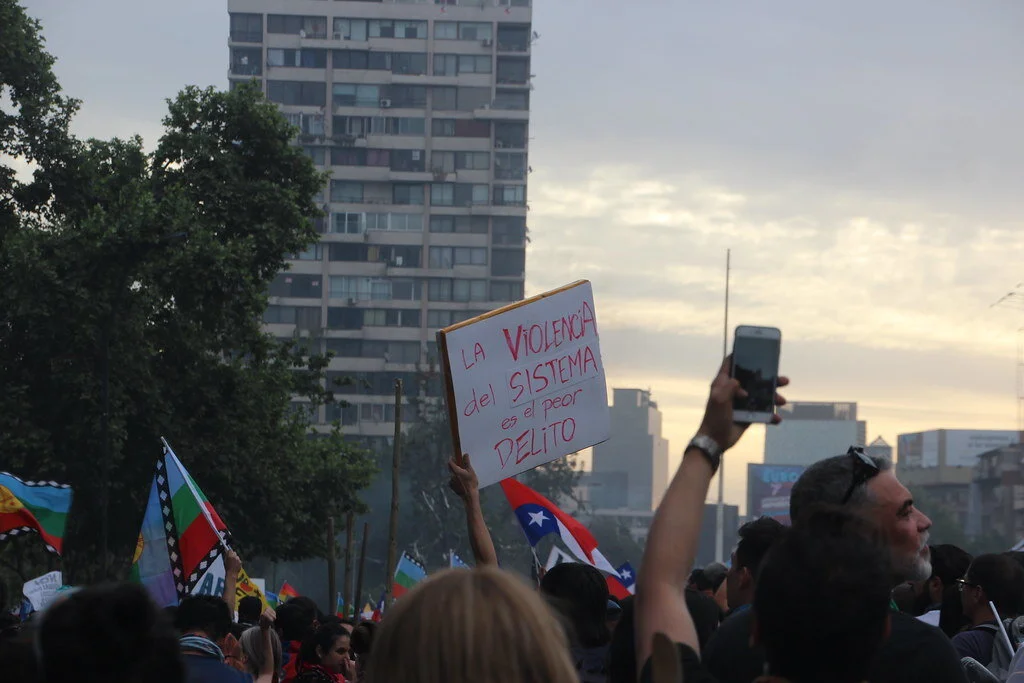Despite unrest in Chile, feminist group Las Tesis continues to advocate for justice against police brutality and sexual violence toward women in Latin America.
Translation: “Systemic violence is the worst crime.” John Englart. CC BY-SA 2.0
Last year, Chilean feminist group Las Tesis released “Un Violador en Tu Camino” (“A Rapist in Your Path”), a song that became an anthem against sexual violence worldwide. The piece, which calls out the judicial system and the struggle of women across Latin America, has been performed all around the world in the form of flash mobs. Many who participate wear black blindfolds and green scarves to advocate for legal abortion practices as well.
The song first was created in light of the social inequality protests occurring in Chile in November 2019. The lyrics call out the unfair treatment of the Chilean government toward women. It says that a narrative is being written where women are to blame for sexual violence. Yet, the song places blame on the patriarchy, police and government systems for being blind to this ongoing violence.
According to the Organization for Economic Cooperation and Development, Chile is considered one of the world’s most unequal countries and is susceptible to climate change. Chile is also considered to have one of the highest costs of living across South America. While the rich prosper from their investments in terms of development, the poor communities and Indigenous people suffer at the hands of urbanization.
Feminist sign in Chile which translates to “the feminist struggle is also against neoliberalism.” John Englart. CC BY-SA 2.0.
Many Chileans consider themselves “at war against a powerful enemy.” Rather than succumbing to the protesters’ demands, President Pinera declared a state of emergency that involved the deployment of the military to control crowds and the institution of a curfew. These measures have caused a sharp decline in protests like Las Tesis’.
International attention has focused on the treatment of protesters, with allegations of human rights violations. For instance, there have been claims that protesters may have been tortured, resulting in at least 19 deaths and 20 people being reported missing. Additionally, there has been a 15% increase in sexual violence reports since last year.
However, on June 12, the police filed a lawsuit against Las Tesis. In the lawsuit, police claim that the feminist group encourages violence against officers of Chile’s national police force, Carabineros de Chile. Charges came after the release of “Manifesto Against Police Violence,” a video produced alongside Russia’s Pussy Riot where protesters stood outside of a police station and demanded to “fire the police.” Chilean police took the video as threats against officers, but no papers have been officially served yet to the feminist group.
Daffne Valdes, one of the founders of Las Tesis, said in an interview with Al-Jazeera that “this is an attack on freedom of expression,” calling it a form of censorship. Even though in both the song and video by Las Tesis the police are called out as “rapists,” group members say they are simply referring to the corruption seen throughout Chile’s police system.
Eva Ashbaugh
is a Political Science and Gender, Sexuality, and Women's Studies double major at the University of Pittsburgh. As a political science major concentrating on International Relations, she is passionate about human rights, foreign policy, and fighting for equality. She hopes to one day travel and help educate people to make the world a better place.





